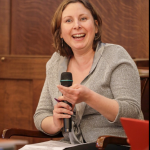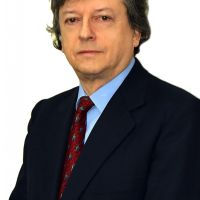Panel
Emerging publishing models
Moderator

Vinciane Gaillard
Academic communication plays a pivotal role in ensuring the smooth functioning of science and technology systems. It operates through two distinct paradigms - the robust, highly profitable publishing industry backed by major conglomerates, and the non-commercial model championed by universities, public research centers, scientific societies, and non-profit organizations. The coexistence of these options is sustained by public funds dedicated to research and development (R&D) and university library budgets, with each embodying a unique approach to ensuring the sustainability of our research systems.
This session seeks to delve deep into the intricacies of the scientific information market, shedding light on how these divergent models interact with the principles of open science. By examining their impacts, we will better understand the dynamics of academic communication and its implications for fostering a more inclusive and sustainable research landscape. Join us as we explore the transformative potential of open science practices in reshaping the future of academic communication.
Key topics of this panel session will include:
- Diamond academic publishing model
- Challenges and opportunities for multilingual publishing: language barriers, translation technologies, and cultural nuances.
- The multifaceted dimensions of sustainability in the ever-evolving knowledge communication ecosystem.
- Research infrastructures and open software emerged as pivotal elements in reshaping the academic publishing landscape.
Academic communication plays a pivotal role in ensuring the smooth functioning of science and technology systems. It operates through two distinct paradigms - the robust, highly profitable publishing industry backed by major conglomerates, and the non-commercial model championed by universities, public research centers, scientific societies, and non-profit organizations. The coexistence of these options is sustained by public funds dedicated to research and development (R&D) and university library budgets, with each embodying a unique approach to ensuring the sustainability of our research systems.
This session seeks to delve deep into the intricacies of the scientific information market, shedding light on how these divergent models interact with the principles of open science. By examining their impacts, we will better understand the dynamics of academic communication and its implications for fostering a more inclusive and sustainable research landscape. Join us as we explore the transformative potential of open science practices in reshaping the future of academic communication.
Key topics of this panel session will include:
- Diamond academic publishing model
- Challenges and opportunities for multilingual publishing: language barriers, translation technologies, and cultural nuances.
- The multifaceted dimensions of sustainability in the ever-evolving knowledge communication ecosystem.
- Research infrastructures and open software emerged as pivotal elements in reshaping the academic publishing landscape.
Panelists

Emanuel Kulczycki

Javier de la Cueva
